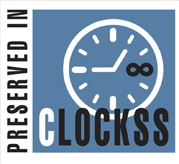Associations of low testosterone levels with stress vulnerability and antidepressant response in aging males
José Jaime Herrera-Pérez, Pharmacological Behavior, Neuroscience Research Directorate, Instituto Nacional de Psiquiatría Ramón de la Fuente Muñiz, México, D.F., México
Graciela Jiménez-Rubio, Pharmacological Behavior, Neuroscience Research Directorate, Instituto Nacional de Psiquiatría Ramón de la Fuente Muñiz, México, D.F., México
Olivia Tania Hernández-Hernández, National Council for Science and Technology, Commissioner to Instituto Nacional de Psiquiatría Ramón de la Fuente Muñiz, México, D.F., México
Alonso Fernández-Guasti, Department of Pharmacobiology, Centro de Investigación y Estudios Avanzados Cinvestav, Mexico, D.F., Mexico
Lucía Martínez-Mota, Pharmacological Behavior, Neuroscience Research Directorate, Instituto Nacional de Psiquiatría Ramón de la Fuente Muñiz, México, D.F., México
Palabras clave: Aging. Antidepressant. Depression. Males. Stress vulnerability. Testosterone.





